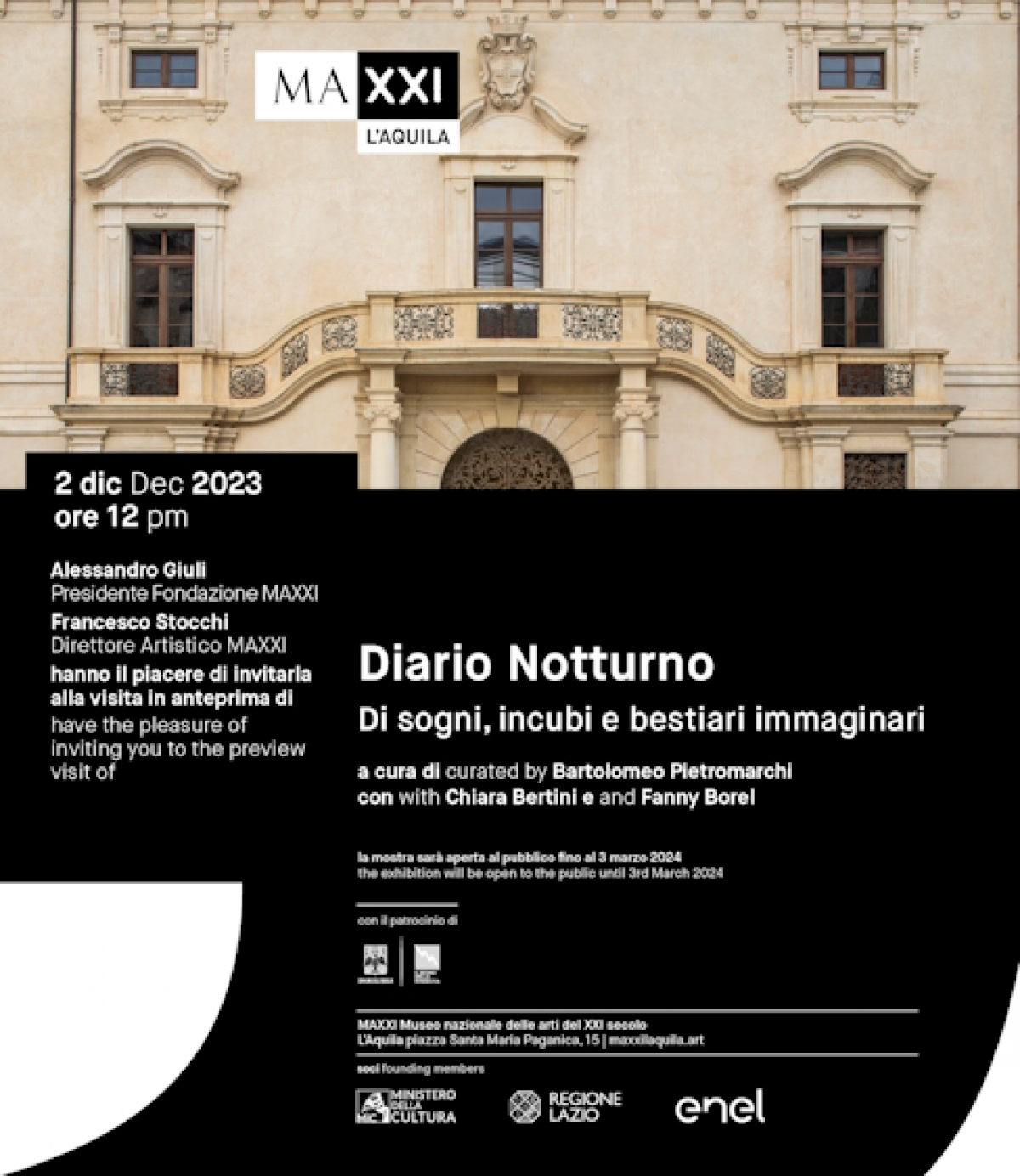I cookie ci aiutano a fornire i nostri servizi. Utilizzando tali servizi, accetti l'utilizzo dei cookie da parte nostra.
03/12/2023
GIUSEPPE STAMPONE
curated by Bartolomeo Pietromarchi with Chiara Bertini and Fanny Borel
Transformations, hybridisms and fluidity create new forms that merge into a dreamlike, visionary atmosphere
Diario Notturno. Di sogni, incubi e bestiari immaginari is the group exhibition curated by Bartolomeo Pietromarchi with Chiara Bertini and Fanny Borel that presents the works of thirteen international artists born in the last thirty years of the last century: Bea Bonafini, Thomas Braida, Guglielmo Castelli, Giulia Cenci, Caterina De Nicola, Anna Franceschini, Diego Marcon, Wangechi Mutu, Valerio Nicolai, Numero Cromatico, Agnes Questionmark, Jon Rafman and Alice Visentin. These are joined by a special project by Giuseppe Stampone in dialogue with Scanno’s photographs from the Franco and Serena Pomilio Collection.
Diario Notturno, which pays homage in its title to one of Ennio Flaiano’s literary masterpieces, invites us to inhabit dreams and explore the nightmares of the present.
In a contemporaneity characterized by constant transformations, the artists involved propose a common imaginative, ironic or perturbing approach, which, borrowing a term referring to artificial intelligence, could be defined as “generative.”
Within the exhibition itinerary, in continuity with the dreamlike and visionary atmosphere of the works exhibited in the first rooms, there is a special project by Giuseppe Stampone, who reinterprets some significant places of the Abruzzo region through drawings on paper and on wood. His works are then placed in a dialogue with photographs of the picturesque village of Scanno from the Pomilio Collection and taken by Henri Cartier-Bresson, Mario Giacomelli, Hilde Lotz-Bauer, Gianni Berengo Gardin, Mimmo Jodice and Ferdinando Scianna: images in which there is a glimpse of the daily life of one of the most representative villages of Abruzzo, with particular attention to the industriousness of the women whose traditional clothes can be recognized.

